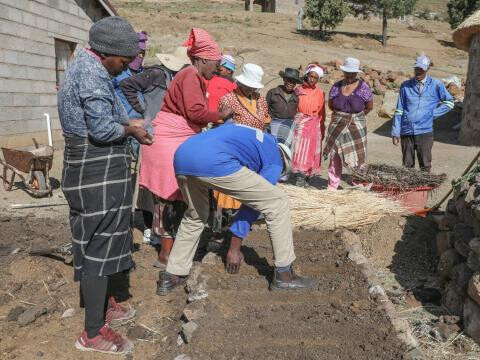
A significant workshop recently took place, sharing and elevating the experiences of communities facing the health impacts of climate change and enhancing understanding of climate litigation as a tool for realizing justice.
According to the United Nations Environment Programme (UNEP), over 2,000 climate litigation cases have been recorded to date, with an astonishing majority inspired by children, revealed Neshan Gunasekera, an international lawyer, CEO of the World Future Council, and Right Livelihood Award laureate.
Gunasekera emphasized, "We believe we are at a turning point where we must look to faith-based traditions so that the juridical wisdom born within rich religious traditions influences the principles of international law today."
Workshop participants engaged with a recent publication by the World Council of Churches (WCC) titled "Hope for Children Through Climate Justice," learning about essential legal tools designed to hold financial actors accountable for perpetuating the climate crisis. This resource is expected to provide practical assistance to churches and communities.
Frederique Seidel, Senior Programme Officer for Child Rights and Climate at the WCC, stated, "We have received much encouragement and support from all sides, highlighting that churches and people of other faiths are best placed to take forward the moral imperative for legal action on global warming."
This project draws inspiration from the spirit of Archbishop Desmond Tutu, who advocated for cutting ties with corporations funding climate injustice. Participants engaged in in-depth discussions on the consequences arising at the intersection of the climate emergency and public health, and on how to advocate for and implement climate-resilient health initiatives.
Integrating two concurrent 1.5-day national consultations held in Chad and the Philippines, the event fostered community partnerships to share insights across continents and build resilience against climate-related health issues.
Dr. Manoj Kurian, Director of the WCC Commission of Churches and Healing, said, "We don't have all the answers, but it helps to explore possible ways in which financial institutions, corporations, states, and the international community can be held accountable. The fact that we are holding hands across the seas in this event reminds us that we are not alone." He further emphasized, "We are suffering and burdened, but we will rejoice together when progress is made. Therefore, when we think of response strategies, we must collaborate globally across borders."
Dr. Kurian added that we must also hold ourselves accountable. "We are accountable to God and to each other to ensure that we are good stewards of creation and the resources we have access to," he stated.
The event was jointly hosted by the World Council of Churches (WCC), the Africa Christian Health Associations Platform (ACHAP), the National Council of Churches in the Philippines (NCCP), and the Association évangélique pour la santé au Tchad (AEAST).
Participants included church leaders from the Philippines and Chad, representatives from WCC member churches and the NCCP, members of the All Africa Conference of Churches (AACC), members of the WCC Commission of Churches and Healing, and members of the Ecumenical Pharmaceutical Network (EPN).
The meetings addressed how to tackle the root causes of global and national health problems arising from the climate emergency. Particular attention was paid to the fundamental risks posed by climate change to human health through heatwaves, wildfires, floods, storms and hurricanes, and the increase in vector-borne diseases.
The fact that the top 10% of the global population accounts for approximately 50% of annual global emissions, yet the most vulnerable, those who have contributed least to climate change – including children and the elderly – bear the brunt of its impact, reveals a stark inequality.
This workshop served as an opportunity to raise awareness of the disproportionate impacts of climate change and to emphasize the importance of international solidarity and legal responses to protect the health of vulnerable populations in particular. Participants pledged to take concrete actions in their respective communities to realize climate justice based on the discussions held.
[Copyright (c) Global Economic Times. All Rights Reserved.]






























